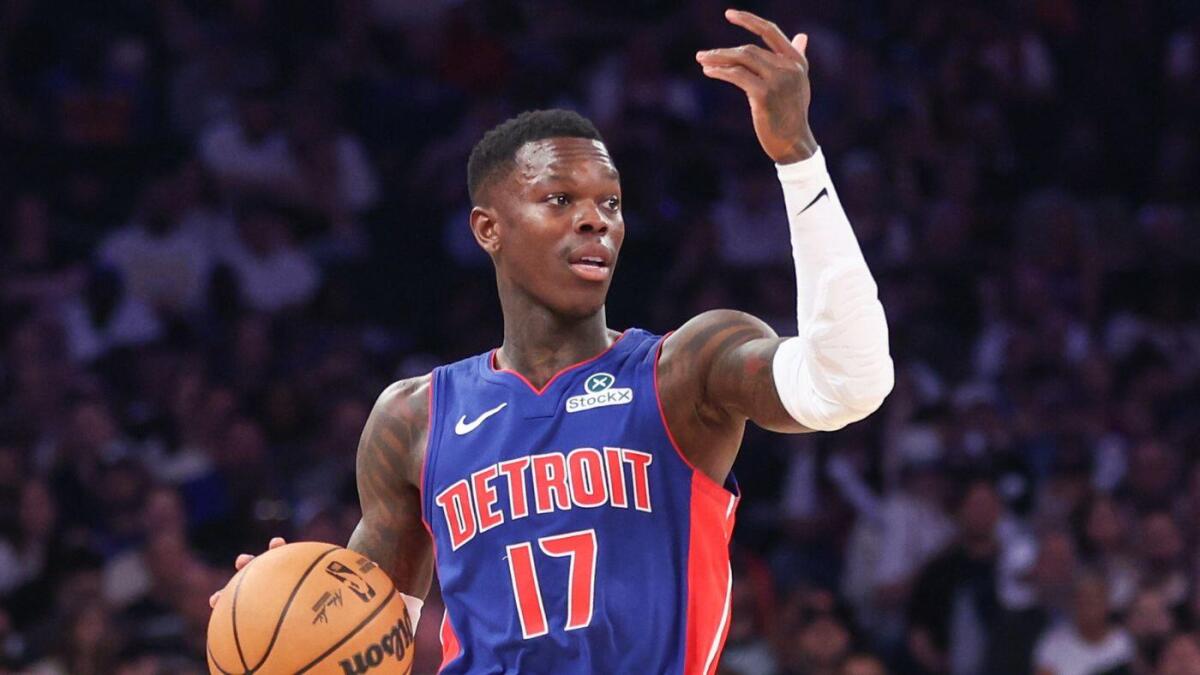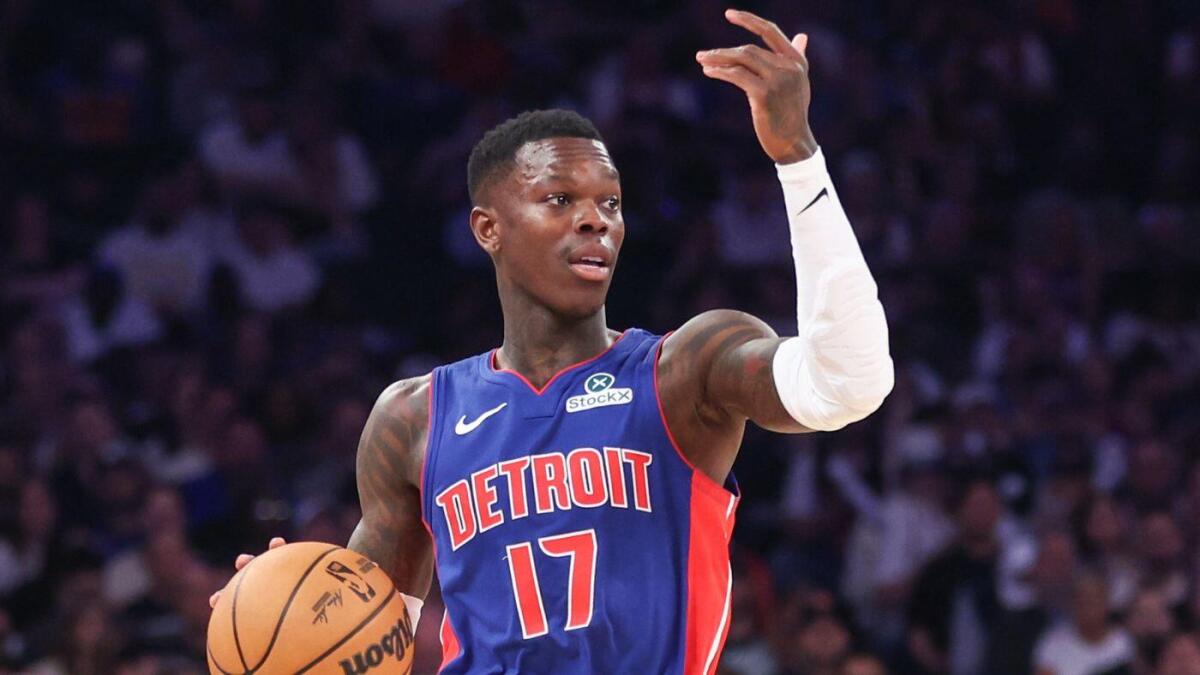Dennis Schröder’s free agency and future with the Detroit Pistons have become a focal point in NBA discussions, reflecting a complex interplay of player aspirations, team strategy, and market dynamics. As the 2025 NBA free agency period approaches, the situation underscores the delicate balance between veteran leadership and long-term roster development.
Schröder’s Impact and Role in Detroit
Dennis Schröder’s arrival in Detroit via a mid-season trade from the Golden State Warriors marked a strategic move by the Pistons to bolster their backcourt. Known for his speed, playmaking, and clutch performances, Schröder brought valuable experience to a young roster anchored by Cade Cunningham and Jaden Ivey. During his 28-game stint with the Pistons, Schröder averaged 10.8 points, contributing significantly to the team’s playoff push. His ability to elevate his game in critical moments made him a key asset, particularly in a season where Detroit aimed to build on its progress.
Schröder’s role extended beyond statistics; his leadership and mentorship were instrumental in guiding the Pistons’ young core. His presence provided stability and a veteran perspective that complemented the team’s developmental trajectory. This dual impact—on-court performance and off-court influence—positioned Schröder as a pivotal figure in Detroit’s immediate and long-term plans.
Public Statements and the Pistons’ Ambiguity
Despite his contributions, Schröder’s public statements have revealed a growing sense of uncertainty. Through social media posts, he expressed a clear desire to remain in Detroit, stating, “I want to stay in Detroit for sure.” However, his follow-up comment, “Detroit ain’t waiting for me,” hinted at frustration with the Pistons’ front office. This duality—wanting to stay but feeling undervalued—reflects a broader tension in NBA free agency, where players often navigate between loyalty and market opportunities.
Schröder’s candid rant further highlighted this tension, as he called out the Pistons for stalling contract discussions. His frustration suggests that while he values his fit in Detroit, he is unwilling to wait indefinitely for a commitment. This stance places the Pistons in a difficult position: either secure Schröder’s return to maintain continuity or risk losing a key veteran leader.
Pistons’ Strategic Considerations
From the Pistons’ perspective, Schröder’s future is tied to their broader roster strategy. With Cunningham and Ivey as the backcourt anchors, Detroit must balance short-term competitiveness with long-term development. Schröder, at 31, fits more as a veteran role player than a long-term cornerstone, making his re-signing a question of fit and financial flexibility.
The Pistons’ front office has shown interest in retaining Schröder but remains cautious due to salary cap considerations and the need to allocate resources across the roster. Players like Tim Hardaway Jr. and Malik Beasley are also in play this free agency, adding complexity to Detroit’s decision-making. Reports suggest that the Pistons view Schröder as a short-term option, potentially signaling a pivot in their long-term direction.
The Free Agent Market and Schröder’s Options
As Schröder enters free agency, his skill set remains in high demand. Teams like the Sacramento Kings and New York Knicks have shown interest, attracted by his playmaking and playoff experience. The Kings, in particular, have emerged as leading suitors, valuing Schröder’s ability to adapt to different systems and provide veteran leadership.
Schröder’s decision will hinge on whether he prioritizes stability in Detroit or explores opportunities elsewhere. While Detroit offers familiarity and a role in a developing team, other franchises may present more immediate competitive aspirations. This crossroads underscores the broader challenges players face in balancing personal and professional goals.
Potential Impact on the Pistons
If Schröder departs, the Pistons will need to address the void left by his leadership and experience. This could involve signing another veteran point guard or accelerating the development of younger players, though the latter carries risks in terms of consistency and high-stakes performance. Retaining Schröder, even on a shorter-term deal, could provide continuity and a balanced roster dynamic, aiding Detroit’s competitive aspirations.
Conclusion: A Delicate Interplay of Aspirations and Strategy
Dennis Schröder’s situation exemplifies the intricate dynamics of NBA free agency, where player desires and team strategies often collide. His public statements reflect a player eager for stability but unwilling to wait indefinitely, while the Pistons navigate the complexities of roster construction. The outcome will shape Detroit’s backcourt composition and influence Schröder’s career trajectory.
Ultimately, this situation highlights the delicate interplay between individual aspirations and organizational strategy—a constant in the high-stakes world of professional sports. Whether Schröder remains in Detroit or embarks on a new journey, his story serves as a reminder of the nuanced decisions that define careers and franchises alike.












